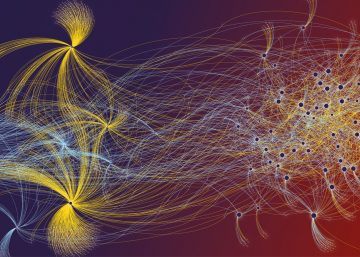Heidi Ledford in Nature:
 Elizaveta Sivak spent nearly a decade training as a sociologist. Then, in the middle of a research project, she realized that she needed to head back to school.
Elizaveta Sivak spent nearly a decade training as a sociologist. Then, in the middle of a research project, she realized that she needed to head back to school.
Sivak studies families and childhood at the National Research University Higher School of Economics in Moscow. In 2015, she studied the movements of adolescents by asking them in a series of interviews to recount ten places that they had visited in the past five days. A year later, she had analysed the data and was feeling frustrated by the narrowness of relying on individual interviews, when a colleague pointed her to a paper analysing data from the Copenhagen Networks Study, a ground-breaking project that tracked the social-media contacts, demographics and location of about 1,000 students, with five-minute resolution, over five months1. She knew then that her field was about to change. “I realized that these new kinds of data will revolutionize social science forever,” she says. “And I thought that it’s really cool.”
With that, Sivak decided to learn how to program, and join the revolution. Now, she and other computational social scientists are exploring massive and unruly data sets, extracting meaning from society’s digital imprint. They are tracking people’s online activities; exploring digitized books and historical documents; interpreting data from wearable sensors that record a person’s every step and contact; conducting online surveys and experiments that collect millions of data points; and probing databases that are so large that they will yield secrets about society only with the help of sophisticated data analysis.
More here.
